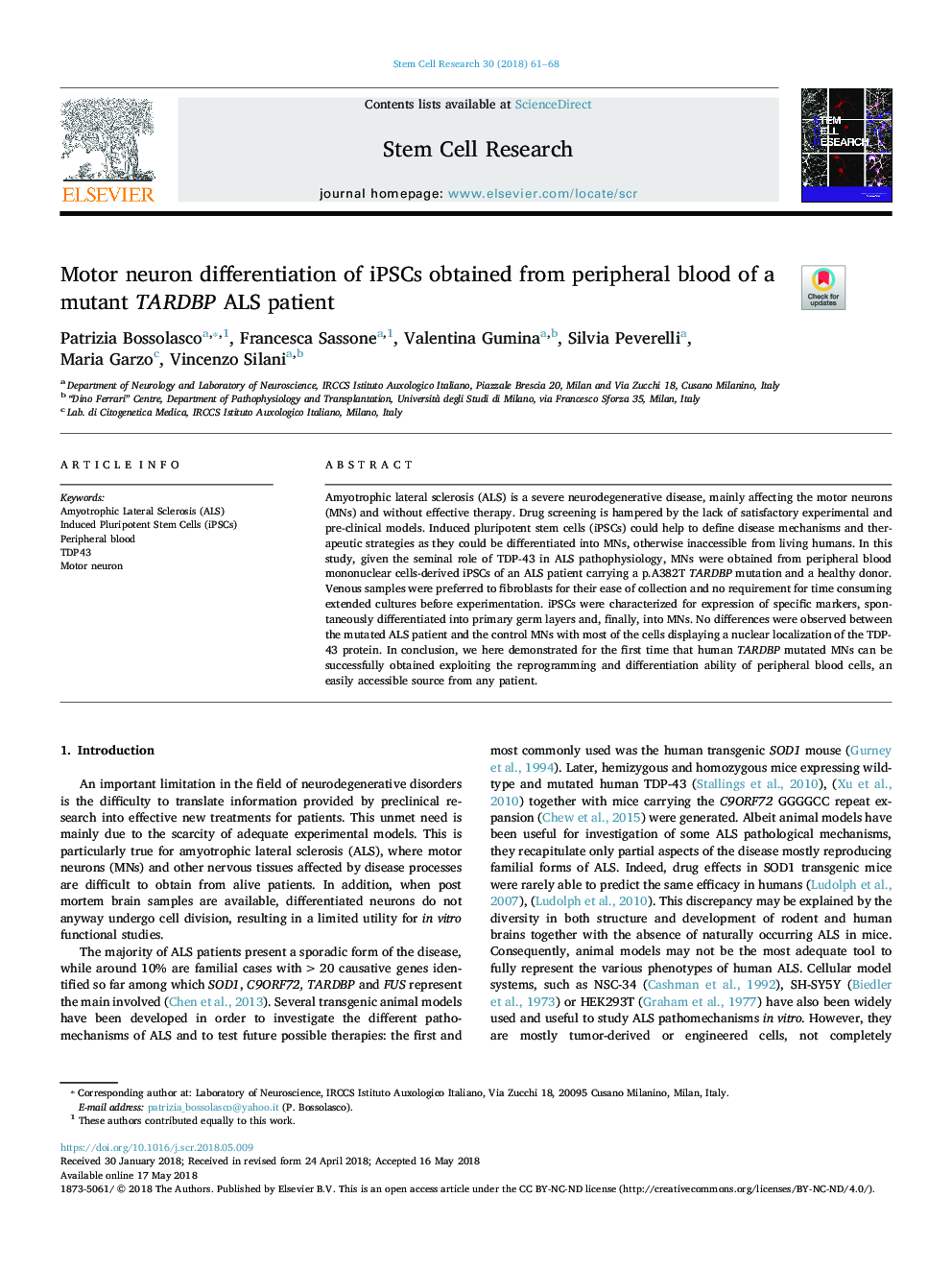| Article ID | Journal | Published Year | Pages | File Type |
|---|---|---|---|---|
| 8425002 | Stem Cell Research | 2018 | 8 Pages |
Abstract
Amyotrophic lateral sclerosis (ALS) is a severe neurodegenerative disease, mainly affecting the motor neurons (MNs) and without effective therapy. Drug screening is hampered by the lack of satisfactory experimental and pre-clinical models. Induced pluripotent stem cells (iPSCs) could help to define disease mechanisms and therapeutic strategies as they could be differentiated into MNs, otherwise inaccessible from living humans. In this study, given the seminal role of TDP-43 in ALS pathophysiology, MNs were obtained from peripheral blood mononuclear cells-derived iPSCs of an ALS patient carrying a p.A382T TARDBP mutation and a healthy donor. Venous samples were preferred to fibroblasts for their ease of collection and no requirement for time consuming extended cultures before experimentation. iPSCs were characterized for expression of specific markers, spontaneously differentiated into primary germ layers and, finally, into MNs. No differences were observed between the mutated ALS patient and the control MNs with most of the cells displaying a nuclear localization of the TDP-43 protein. In conclusion, we here demonstrated for the first time that human TARDBP mutated MNs can be successfully obtained exploiting the reprogramming and differentiation ability of peripheral blood cells, an easily accessible source from any patient.
Keywords
Related Topics
Life Sciences
Biochemistry, Genetics and Molecular Biology
Biotechnology
Authors
Patrizia Bossolasco, Francesca Sassone, Valentina Gumina, Silvia Peverelli, Maria Garzo, Vincenzo Silani,
